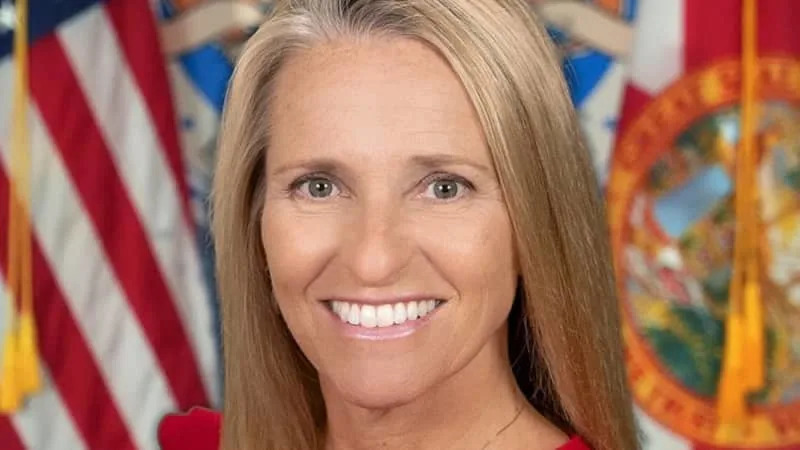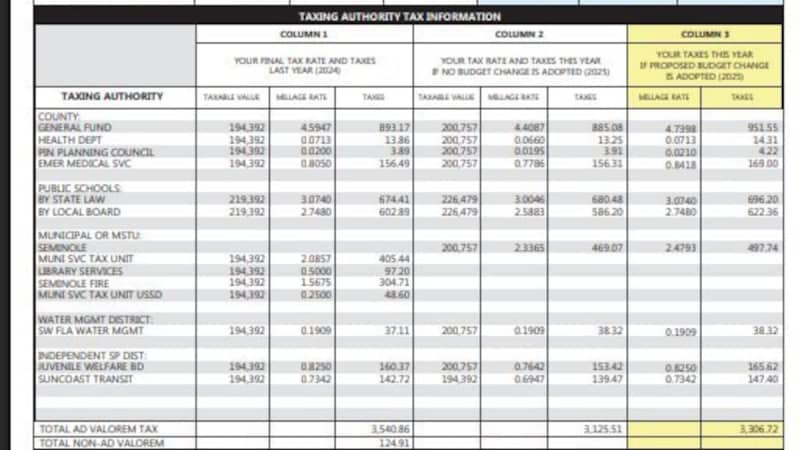Florida is rightly considering bold ideas to ease the burden of property taxes. As a lifelong resident and county commissioner, I believe we can achieve meaningful tax relief — starting with those who have called Florida home for decades.

Eliminating all homesteaded property taxes at once, however, would bring unintended consequences: a surge of new residents and significant revenue shortfalls for local governments. The result? Floridians would pay more for everyday goods and services to make up the difference. Is it fair for lifelong Floridians to subsidize newcomers who have never contributed to our property tax base?
A phased approach makes sense. To begin, eliminate property taxes for those who have paid homesteaded property tax for more than 25 years. Floridians would not be required to live in the same home, only maintain a permanent homesteaded residence, in Florida, for over 25 years. A sliding scale, based on years of homesteaded ownership, could then be used to gradually reduce property taxes for all Florida homesteads until full elimination is achieved.
Minimizes sudden tax shifts: Comparing homes of equal value, long-term residents generally pay less property taxes than newer homeowners, making revenue gaps easier to manage.
Rewards loyalty: It honors those who have lived, worked and raised families in Florida.
Tests the model: Starting with a subset allows evaluation and adjustment before broader implementation.
Supports retirees and young talent: Long-term residents can remain in their homes, while younger workers are encouraged to stay in Florida.
Ensures fairness: A gradual sliding scale allows all Floridian Homeowners to benefit from tax relief.
A variation of this method of tax relief would honor veterans who grew up in Florida and honorably served in the military for 20 years or more. Those years of military service could be counted toward the 25 years required for tax exemption, recognizing both veterans’ service and their connection to the state.
Any reduction in property taxes must be paired with proportional state support to replace lost funding for local governments. Otherwise, remaining homeowners and businesses would shoulder an unfair burden.
How can this be accomplished? That is the multi-billion-dollar question. Eliminating property tax is a challenging feat; it’s proven to be the most stable and predictable local revenue source. Nevertheless, many Floridians want the idea explored, and Gov. Ron DeSantis has called for a clearly worded referendum to bring before voters. Ultimately, the solution will require a multi-faceted exercise in fiscal prudence. Chief Financial Officer Blaise Ingoglia is leading the charge to encourage county governments to adopt more conservative budgeting practices; the state must follow the same prudent path.
First, a comprehensive review of the current budget must be conducted to determine how much funding can be reallocated to replace local revenues. Next, a total dollar amount should be identified to support the plan. If a deficit remains, new funding mechanisms will need to be explored. Voters may support a modest sales tax increase if it corresponds with a gradual reduction in property taxes leading to full elimination, however a significant increase would place an undue strain on fiscally constrained households. Experts at the Florida Department of Revenue and the Office of Economic and Demographic Research should provide the data, options and analysis to guide this effort and ensure that any proposed solution is both equitable and sustainable.
As Florida explores various options for achieving property tax relief, careful consideration is needed to avoid unintended consequences. Policies that impose high fees or additional taxes on home purchases could make first-time homeownership unattainable, drive up rental rates and strain our workforce. Likewise, tax plans should not be based on a homeowner’s age. Such an approach could invite an influx of new retirees seeking to live tax-free, leaving long-term Floridians to foot the bill. While all tax-elimination proposals are considered, efforts to reduce property insurance premiums must remain a top priority.
Florida can lead with smart, fair property tax reform. By beginning with long-term residents, we can honor their loyalty, support retirees and ensure sustainable, broad-based property tax relief for the future. I welcome the opportunity to work with lawmakers and citizens to make this vision a reality.
Diana Finegan is a Citrus County commissioner.

